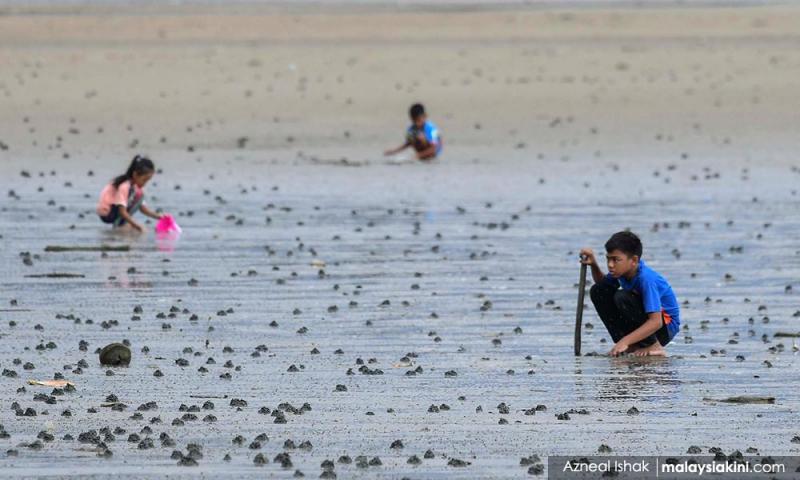LETTER | Shedding light on plight of undocumented children
LETTER | Sufia is eight years old. She was born into a life of uncertainty in Semporna, Sabah. A little over a year ago, immigration officers detained her father, and he never came home. Her mother, who was then pregnant with Sufia’s youngest brother, was left to care for Sufian and three other children.
Every morning, Sufia goes to “work” at the local market. Wearing her half-broken slippers and a tattered T-shirt stained with black hair dye, she offers to help tourists carry their purchases for a meagre fee of 30 sen.
She always encounters rejection in this plastic bag “business” because all the other kids are doing the same thing, and business owners and tourists constantly shun them for looking dirty and crowding around tourists. A small pink bag is slung across her bony shoulders to keep the spare change tourists hand to her for the service she provides.
Her mother does not work because she is looking after the youngest of Sufia’s siblings. Most days, Sufia can be found with her friends, and the streets serve as a playground and place to make ends meet.
On a good day, Sufia’s efforts see her making close to RM5, which means she can afford the RM1 boat fare to return home. On other days, she begins the hour-long trek home with barely a few coins in her pink sling bag.
Clean water supply is inconsistent in her kampung, which makes having clean water a matter of chance and luxury. Sanitation, a public service taken for granted almost everywhere else in Malaysia, is non-existent.
Without the means to afford garbage disposal services, trash litters the landscape, but no one seems to be able to do anything about it.
Sufia is but one of the 250,000 undocumented children living in Sabah, collectively referred to as the “invisible children” because of their exclusion from national databases. She identifies as being of Bajau Laut ethnicity, but was not registered as a Malaysian citizen simply because her parents were themselves denied the same rights.
She was delivered at home, in the very same wooden hut she now lives in. She has never received any vaccinations a child her age should have, and will likely never see the inside of a proper school because undocumented children like Sufia are not entitled to formal education in public schools, relying instead on informal means of education provided by alternative or community learning centres.
Having to work, Sufia has never received any education. At eight years old, Sufia cannot read or write.
Children begging on the streets in Semporna is not unusual. As medical professionals, we could immediately identify myriad health problems – malnutrition, infestations of lice nits in their hair, extensive fungal infections, wounds and cuts borne from extended periods of street walking or fights with other children, poor oral health, and conspicuous signs of lung infections in some.
Without the financial capacity to sustain their basic needs, prioritising health and healthcare access is the last of their immediate concerns.
Some children have told us that the money they earn is entirely given to their parents, and none is invested in their future. Some of them dream of marrying young and having children of their own, so their children can help the family by selling plastic bags.
As we reflect on Sufia’s aspirations, typical childhood dreams of being a doctor, teacher, or scientist are replaced with a yearning for respect and dignity, set on a backdrop of her constant battle against a system that systematically denies her the most basic rights. We are reminded that Sufia’s hopes and dreams are not just individual desires but represent the collective appeal of an entire community for fundamental rights to health and education.
Despite our inability to reform laws or alter socio-economic landscapes, this is a call to action. Advocacy is a tool to shed light on the plight of these children and the communities they come from.
We can care with compassion, treat with kindness and work together to support these children’s healthcare and education, fully cognisant that while our impact may be finite, we can always do something to make a difference – and perhaps you could too.
The writers are primary care doctors with experience working with stateless populations.
The views expressed here are those of the author/contributor and do not necessarily represent the views of Malaysiakini.
RM12.50 / month
- Unlimited access to award-winning journalism
- Comment and share your opinions on all our articles
- Gift interesting stories to your friends
- Tax deductable
